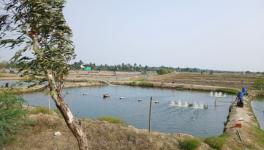Old Wounds of Taliban Terror Still Fresh for Afghan Refugees in Delhi, ‘Going Back’ is not an Option now
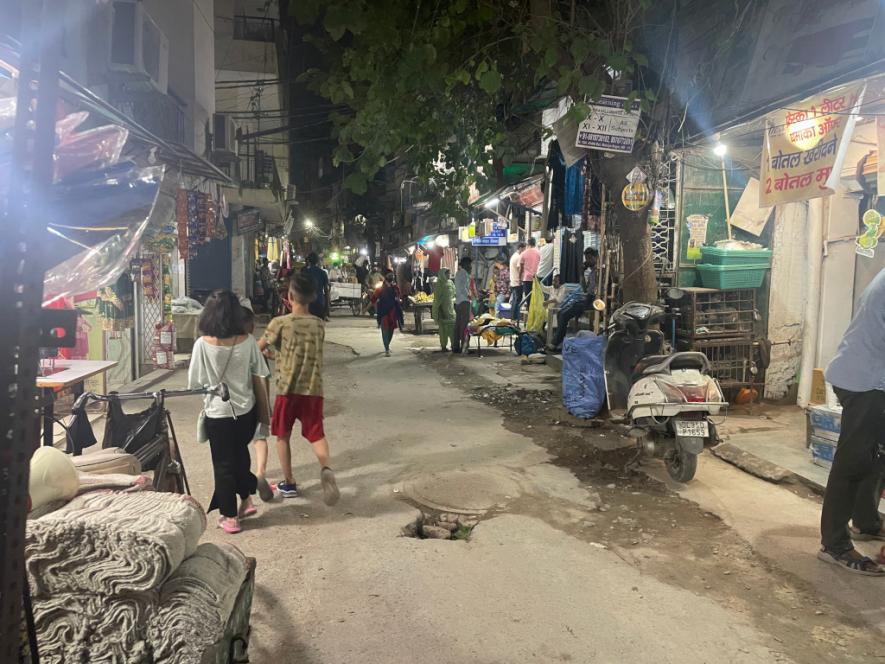
Images Credit: Sravasti Dasgupta
New Delhi: A busy road in South Delhi’s Saket separates three of the city’s biggest malls and a long row of Afghan shops, mostly restaurants and pharmacies. Where the row of shops ends, lies a long winding lane that takes you into the narrow bylines of Hauz Rani -- one of the biggest Afghan refugee settlements in the national capital.
Tamanna, 22, is one of the many Afghan refugees who live and work here. While the Taliban’s takeover of Afghanistan last month with the fall of Kabul may have shaken the world, Tamanna is no stranger to the Taliban’s might.
“Back in 2014, I was only 15 when the Talibs came into our house and killed my father. They came to our house, hung him on a rope and killed him, then left his body on an open Quran. They threatened my mother saying they would take me and my siblings away with them. That is when she decided that we had no option but to leave,” she said.
Tamanna and her five siblings -- two sisters and three brothers -- along with her mother left their home in Afghanistan’s Mazar-e-Sharif and fled to Kabul and were able to reach Delhi. After seven years in the city, doing odd jobs at different shops, Tamanna now works at one of the chemist shops opposite the three malls and earns a meagre Rs 12,000-- which is hardly enough to sustain her family. Even with her little means, Tamanna said, “going back home is not an option.”
Old Wounds Reopened
Tamanna is not alone. Every corner, every bylane, every shop in Hauz Rani has untold stories of horrors witnessed by thousands of Afghans who left their homes in search of a better life. According to UNHCR (United Nations High Commissioner for Refugees) figures in 2020, around 16,000 Afghan refugees live in India’s capital, mostly in South Delhi’s Hauz Rani and Lajpat Nagar.
The Taliban’s takeover has re-opened old wounds for many here.
“Taliban has come to Kabul now, but my village in Badakhshan was taken in 2014. We lived there for two years under Taliban rule. They told us what to wear, how to pray, how to work, everything was on their diktat. They would say you only have to wear traditional shalwars, grow your hair and your beard, and go pray in the masjid five times a day. And if we refused, they would dunk us in the cold river water in our village as punishment,” said Sikandar, who works at Hauz Rani’s Green Leaf Restaurant.
Sikandar fled Afghanistan in 2016 and settled in Delhi. Now 26 years old, he says his hopes of returning home have been dashed. “We had hopes that maybe we will return after a few years when the Taliban left. But that seems impossible now. I have two sisters back home and I worry for their safety every day,” he said.
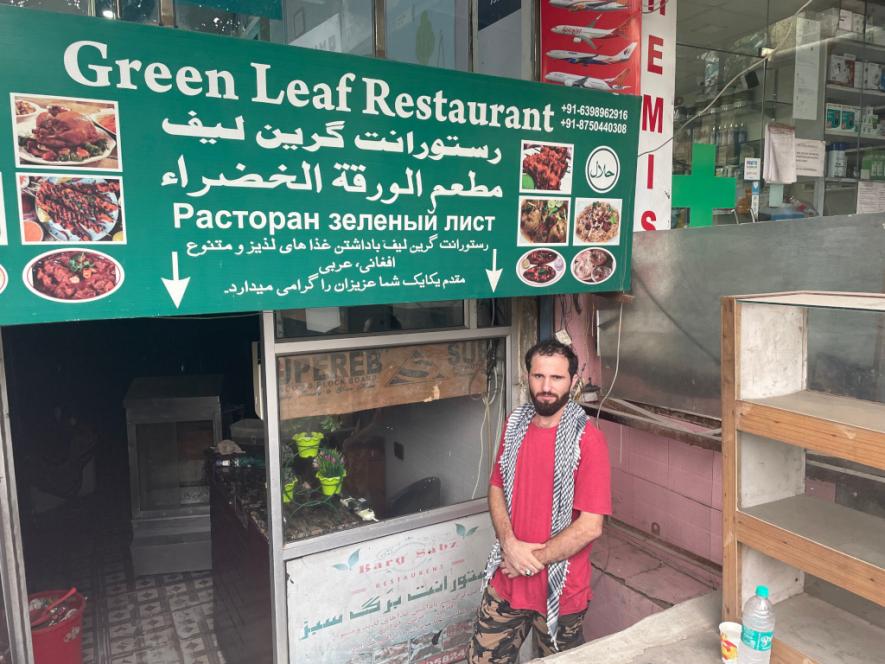
Sikandar.
Amruddin Bakhtyar, 38, runs a small grocery store in one of Hauz Rani’s bylanes. His shop is busy on Tuesday evening as customers, mostly Afghan refugees who live in the area, pour in to buy essentials. Bakhtyar exchanges greetings with most, switching from Pashto to Hindi with ease.
“Taliban have formally taken over Kabul now but Kabul wasn’t safe earlier either. I worked as a government official for 16 years but I was forced to leave. Every day there were bomb blasts, we would be rushed to the safe room below our government office. But soon my children’s lives were also in danger. They were almost kidnapped from a busy lane near my house and we could do nothing. To date we don’t know who those men were, whether it was the Taliban or some rival political faction,” Bakhtyar said.
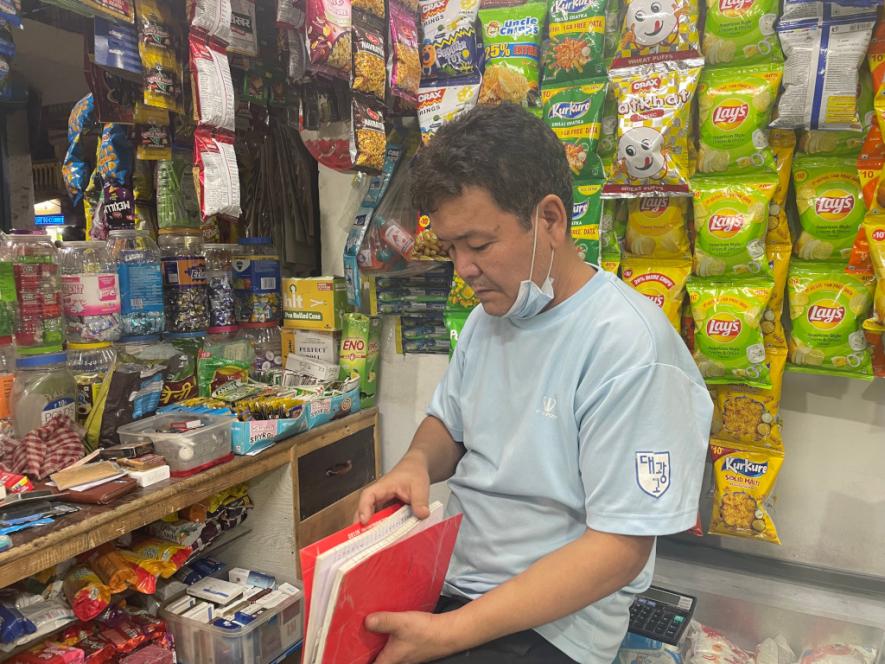
Amruddin Bakhtyar.
“Afghanistan is sandwiched from all sides. Whether it is the Taliban or Pakistan or Russia or the US or China, everyone wants a piece of Afghanistan so we can never hope for peace. Nobody likes to leave their homes, but what can we do?” he adds.
Waiting For a Better Tomorrow
While many Afghans like Bakhtyar have reconciled to building a future in India, younger Afghans in Hauz Rani hope for a better tomorrow. Salman, 16, runs his father’s departmental store in Hauz Rani. His family is waiting for final papers from the UNHCR office to migrate to Canada. “Most of the formalities are done. We are just waiting for the final documentation and then we will move to Canada,” he said.
Ali, 38 moved to Delhi three years ago and now works as an accountant online. Having worked for the US government forces in Afghanistan, Ali is among the few who will be migrating to the US soon.
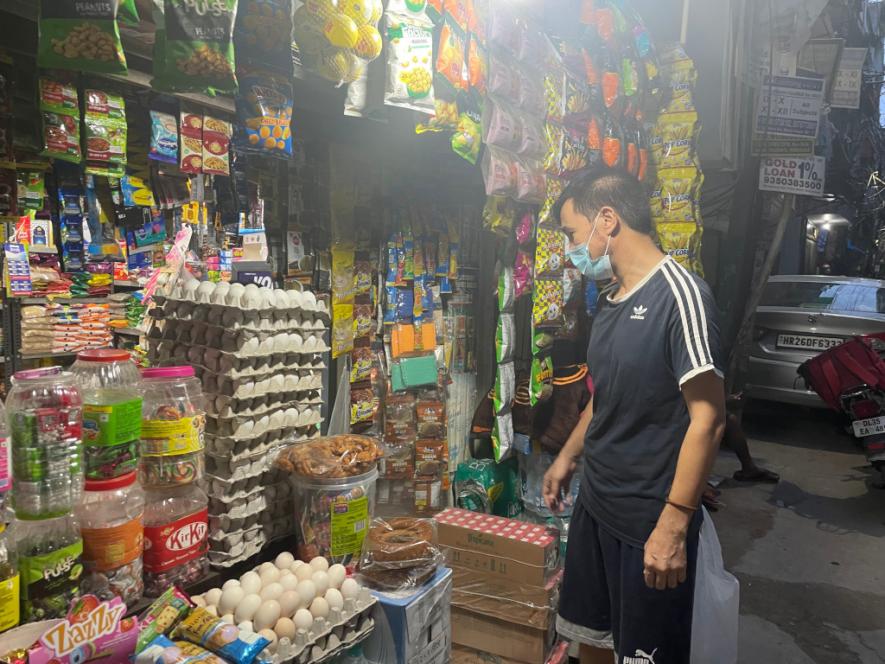
Ali.
While Ali has found a way out, he knows he is among the fortunate few. “We don’t have Aadhaar cards so we cannot seek employment in India even though we may have work experience and degrees. Afghans see Delhi as a temporary base, everyone has some acquaintance or the other here, living arrangements and temporary jobs can be arranged to make ends meet till we can move to either US or Canada,” he said.
For many refugees like Ali, war is all they have seen. “Even before the Taliban, factional fights between different political forces in the early 1990s meant bomb blasts, kidnappings everywhere every day. Then the Taliban came, then the US and now the Taliban are back. In my almost 40 years of existence, I have only seen war. My family and I are hoping that at least in the US we will see peace,” he said.
However, not all are as lucky. Siraj, 48, who works at a grocery store in Hauz Rani, lost his mother in a bomb blast outside Kabul eight years ago. “We were going to my sister’s house when the explosion went off. My mother died on the spot, my wife and I were injured,” he said, showing the burn marks on his hands and stomach. “My two children were in the car with us but the blast displaced them and we couldn’t trace them for almost a month before we found them in one of the hospitals outside Kabul and then decided to leave the country forever,” he said.
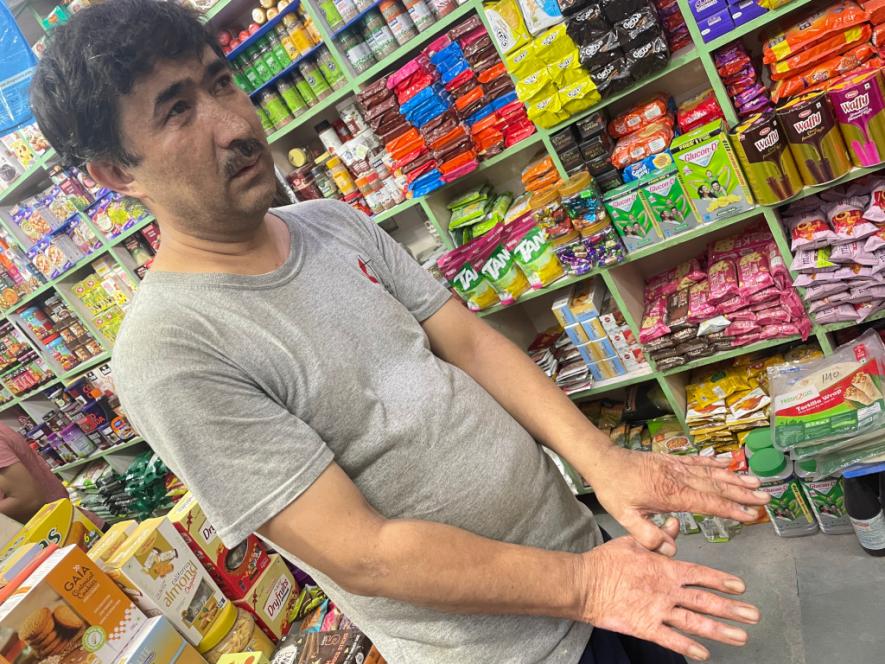
Siraj shows his burn scars sustained during a bomb blast near Kabul.
“I too want to take my family abroad and give them a good life there. But we are poor and I don’t have any relatives or acquaintances in Canada or the US or anywhere else who can take me in. So I have to just stay here and do the best I can for my family,” he said.
Get the latest reports & analysis with people's perspective on Protests, movements & deep analytical videos, discussions of the current affairs in your Telegram app. Subscribe to NewsClick's Telegram channel & get Real-Time updates on stories, as they get published on our website.









